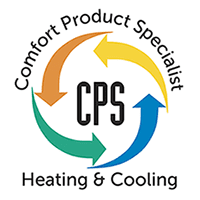Now that you’ve joined the more than 60% of Massachusetts residents who own their homes, you’ll always have something to do around the house!
Transitioning from renter to homeowner takes time, especially when it comes to maintenance, repairs, and upkeep. If you’re already in your new home, this probably isn’t the first DIY home repair article you’ve read.
However, this is the best article on the 6 Things Homeowners Never Thought To Do As Renters.
 1. Clean the gutters.
1. Clean the gutters.
Yes, this is a real thing. Maybe you had to clean gutters when you were a kid as punishment, but the chore is not pointless.
Gutters help move rainwater away from your home. As a new homeowner, I hope you never have to deal with water damage. It’s costly, a mess, and takes a lot of money and manpower to clean up.
When gutters clog with debris, they can overflow and cascade water down the side of a building and flood the foundation.
It’s also very important to clean gutters in seasonally cold-climate areas like Massachusetts. In winter, clogged gutters can contribute to damage caused by ice dams.
CHORE #1: Clean your gutters 4x a year, says the National Association of Realtors. If you don’t like heights, you may consider installing a rain gutter guard.
 2. Pick up your yard.
2. Pick up your yard.
Most homeowner associations (HOA) strictly outline and enforce standards for lawn care and appearance. If you’re really into cultivating a golf-course lawn, you know what to do. For those who prefer a more natural look—complete with dandelions, clovers, and crabgrass—you may want to read the fine print before buying a home in a neighborhood with an HOA.
To uphold the social fabric of a community, some towns in Massachusetts maintain some level of control over private property. For instance, Milford, MA, has a nuisance bylaw prohibiting “overgrown vegetation which may harbor rats and vermin, conceal pools of stagnant water or other nuisances, or which is otherwise detrimental to neighboring properties or property values.”
As a new homeowner, you want to keep safety on the forefront of your mind. You have to ask yourself, “Can a delivery person, first responder, or anyone else who must access my home do so safely?” That includes you!
CHORE #2: Rake your leaves, mow your lawn, and clear the sidewalks. Make sure walkways are clear of all debris, including toys, furniture, snow, and anything else. Trim bushes and trees away from the house to increase airflow and decrease mold and other damage.
During storms with anticipated high winds, get all the bikes, toys, balls, lawn furniture, and everything that the wind can throw inside.
Read about the 3 Biggest Threats To Your HVAC Equipment In A Hurricane.
3. Vacuum the dryer vent pipe.
All the convenience of having your own appliances at your fingertips comes with responsibility. Dryers, washing machines, refrigerators, stoves, and HVAC systems all cost a lot of money to replace and repair. However, with regular preventative maintenance, you can keep your major appliances running efficiently (to lower energy costs) and performing at their best (to last longer).
Even if you clean out the lint filter after every load, over time, lint builds up in the vent pipe leading outside. The Massachusetts Association of Realtors recommends vacuuming the dryer vent pipe once a year. Not only will your dryer run better, but you also reduce the risk of a fire.
CHORE #3: Find the owner manuals for all your major appliances and read up on the regular maintenance each piece of equipment requires. Set calendar reminders so you don’t forget to do each task.
In some cases, such as with your central heating & cooling system, you may want to hire a nearby HVAC contractor who offers an affordable preventative maintenance plan.
[service-tech-greeting-2: Get 50% discounts on diagnostics fees and 15% discounts on contracted equipment repairs.]
 4. Change the air filter in the furnace.
4. Change the air filter in the furnace.
While we’re on the topic of heating systems, remember to think about your home’s heating system while it’s still warm outside.
I wrote an entire article on fall furnace tune-ups.
During cold winters when the furnace is running hard, many experts suggest checking the air filter once a month. A clogged air filter can cause a lot of damage to a furnace by stressing the motor trying to move air through a block passage.
Without a preventative maintenance plan, you can expect to pay less than $100 for an HVAC technician to put in a new filter, according to Consumer Reports. If the clogged filter goes unchanged, the compressor can fail, which can cost up to $2,000 or more.
CHORE #4: Familiarize yourself with your home’s heating system. Do you use gas or oil? Is it forced air or radiant heat? Back to safety: don’t wait until you lose heat to find a nearby HVAC repair technician.
Here’s my advice on how to Hire The Best Heating And Cooling Contractor Near Me.
 5. Check in on the sump pump.
5. Check in on the sump pump.
More than 60% of American homes suffer from below-ground wetness, according to the American Society of Home Inspectors.
One way to manage a moisture problem in the basement is with a sump pump. Typically buried in a pit below the floor of the basement in the lowest spot, the sump pump turns on when underground water reaches a certain level. Then, the pump moves the water out through pipes into the yard and away from the house.
CHORE #5: Pay attention to how often the sump pump turns on. It may just happen during storms, or if you live in a particularly wet area, it may happen more frequently. At least every 3 months, check the sump pump for broken or missing parts, inspect pipes for failing connections, and clean the inlet screen, suggests the Massachusetts Association of Realtors. Also, on a yearly basis, give the sump pump and drainage area a thorough inspection.
![Full-service installation and emergency repair for furnaces, boilers, and heat pumps.]](https://cpshvac.com/wp-content/uploads/2019/09/is4335837-300x201.jpg) 6. Winterize your plumbing.
6. Winterize your plumbing.
If you live in your home year round, chances are your plumbing is mostly safe from frigid temperatures. Losing heat can put your plumbing in danger of freezing. That’s obvious, but there are some less apparent ways you should plan for before your pipes freeze and burst!
Before temperatures drop below freezing, disconnect your garden hose from the outside faucet and drain it. If you don’t, water inside your hose can freeze, expand, and break the faucet.
Do you have any additions or three-season rooms? Check to see if there is any plumbing in your patio, garage apartment, or she-shed. If so, you may need to insulate the pipes. Or, you may need to keep the rooms heated with a mini-split or drain the pipes in winter.
CHORE #6: Find out where your plumbing runs, and consult a professional plumber before the first freeze to avoid potential emergency water repairs.
Most importantly—enjoy your new home!
Phil
CPS Heating and Cooling
You can always call on your extended family of dependable heating, cooling, and air quality experts at CPS Heating & Cooling.
Contact us anytime to set up a consultation or call us at 508-460-6691.






